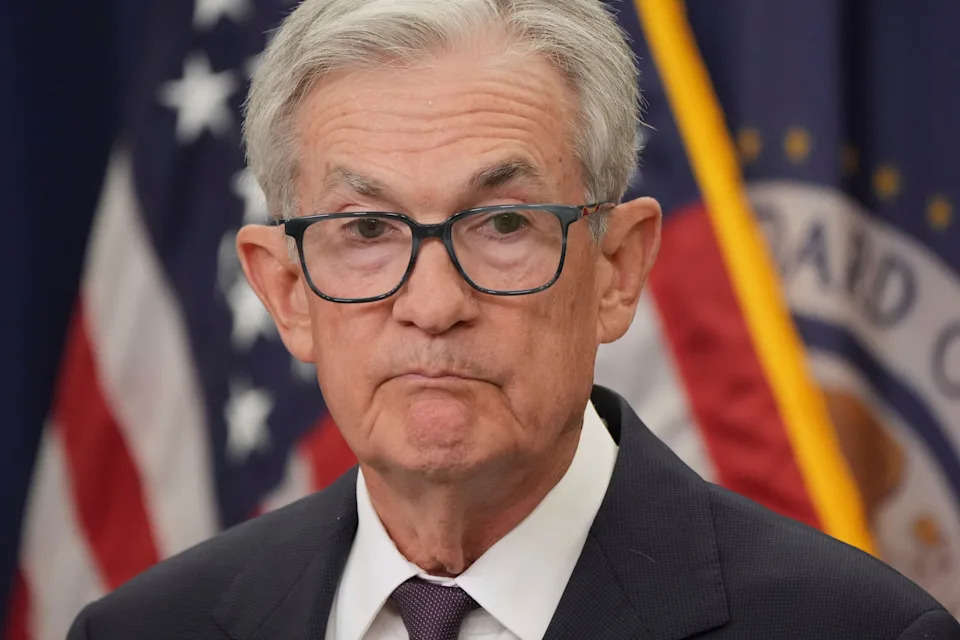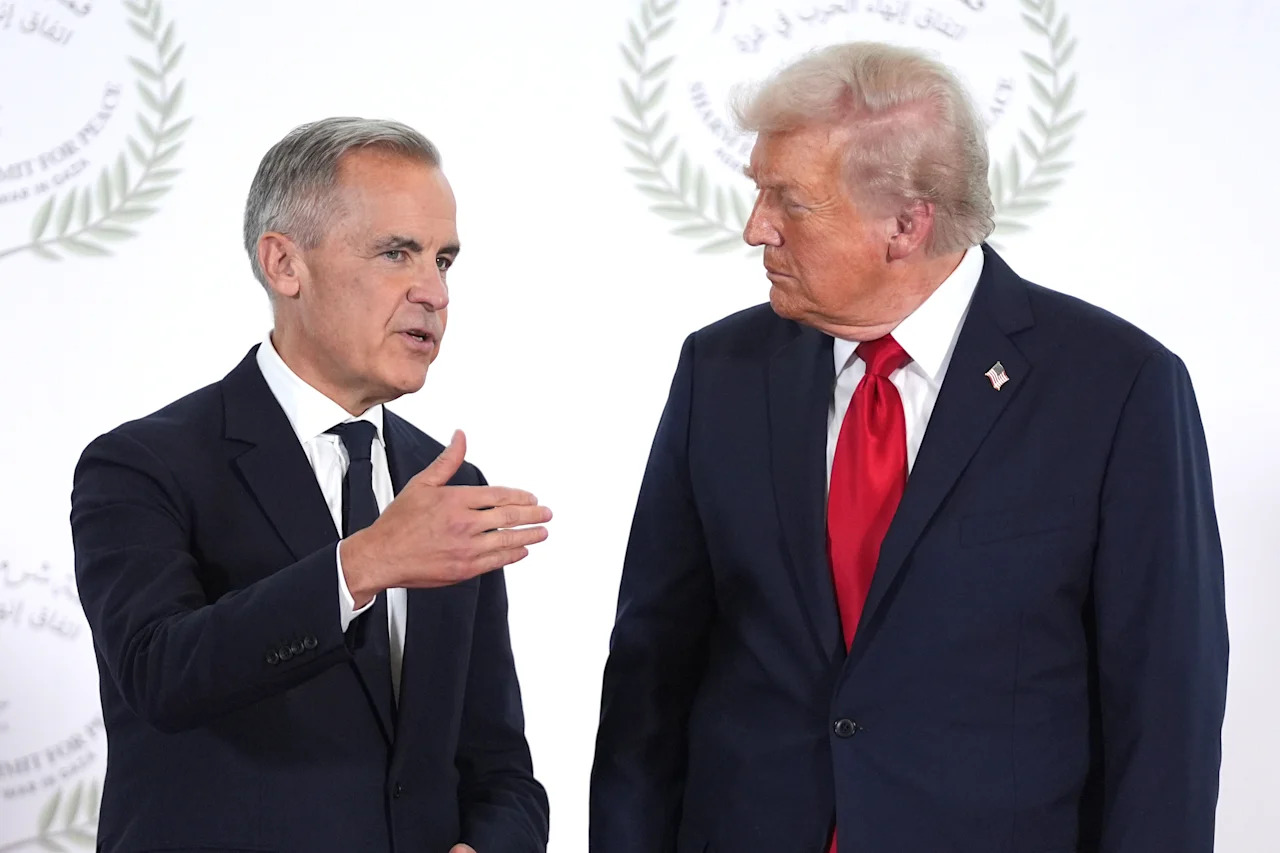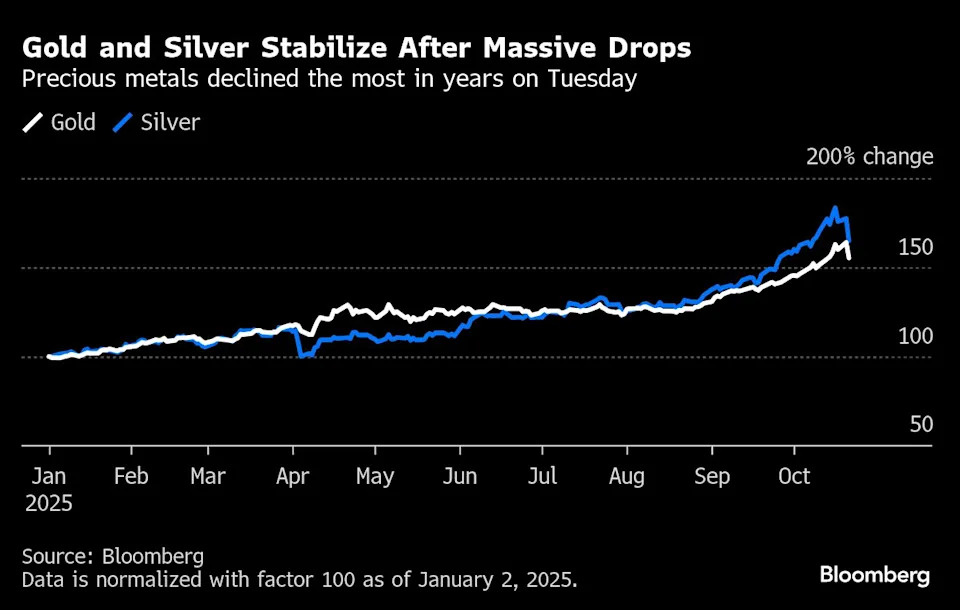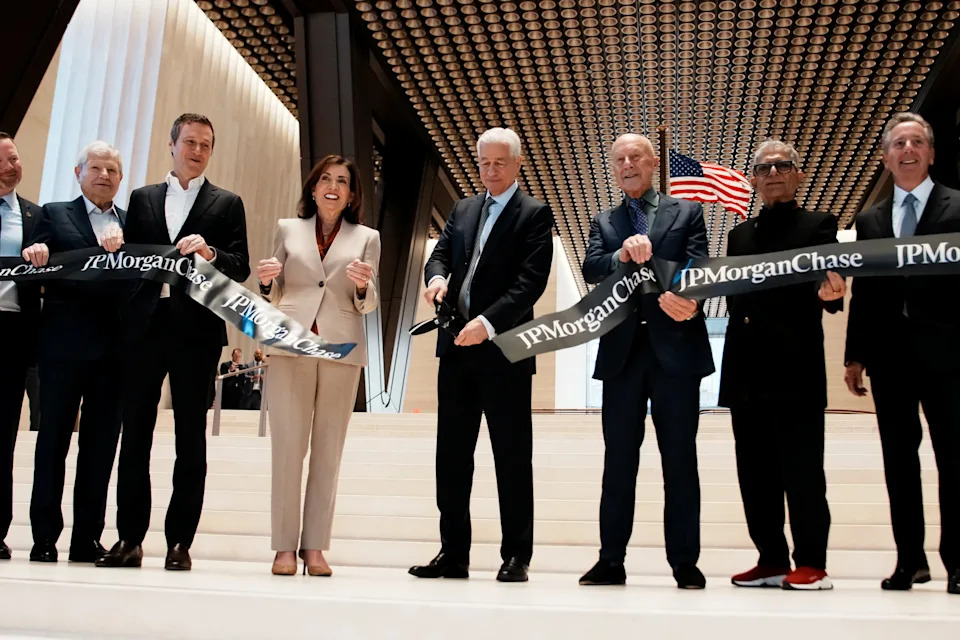Thank you! Your submission has been received!
Oops! Something went wrong while submitting the form.

Tesla 'may lose' Elon Musk if shareholders don't approve $1 trillion pay package, chairperson warns
Key Points
- Tesla Chair Robyn Denholm urged shareholders to approve CEO Elon Musk's massive compensation package, warning that Musk might leave the company if the plan is not approved, risking the loss of his critical leadership.
- The proposed package, tied to aggressive performance targets, could cost Tesla $1 trillion, but Denholm argues it is essential to retain Musk’s vision across Tesla’s diverse sectors like automotive and robotics.
- Independent proxy advisers Glass Lewis and ISS oppose the package, calling it excessive and dilutive, while Musk has criticized these advisers as "corporate terrorists."
- Musk’s prior 2018 pay package is under legal scrutiny in Delaware, with ongoing appeals, while the new package is expected to pass at the November 5 shareholder meeting despite opposition.
- Critics highlight Musk’s political activities as damaging to Tesla’s brand, yet supporters like Wedbush analyst Dan Ives believe the package will secure Musk’s role during a pivotal time for the company.
Summary
Tesla Chair Robyn Denholm has issued a urgent plea to shareholders to approve CEO Elon Musk’s unprecedented compensation package, potentially worth $1 trillion, warning that his departure could jeopardize Tesla’s future. In a letter to shareholders, Denholm emphasized Musk’s indispensable role in driving Tesla’s success across automotive, robotics, and autonomous driving sectors, arguing that without an equitable pay-for-performance plan, Tesla risks losing his leadership and significant value. The package, linked to ambitious targets like a $8.5 trillion market cap, faces opposition from proxy advisers Glass Lewis and ISS, who deem it excessive. Musk, embroiled in a legal battle over his 2018 pay package, has criticized these advisers harshly. Despite concerns over Musk’s political engagements harming Tesla’s brand, analysts like Dan Ives predict shareholder approval at the November 5 meeting, viewing it as crucial during a critical phase for Tesla. Denholm insists Musk alone can lead Tesla to new heights in growth and societal impact.
yahoo
October 28, 2025
Stocks

Trump tariffs live updates: Trump terminates trade talks with Canada, threatens additional tariffs over Reagan ad; US sets date for meeting with China's Xi
Key Points
- Trump Threatens Tariffs: President Donald Trump has threatened to raise tariffs on Canada by an additional 10% in response to an Ontario government ad featuring Ronald Reagan criticizing tariffs.**
- Ad Controversy: The ad, funded by Ontario and aired during the World Series, prompted Trump to terminate all trade negotiations with Canada, calling the move "egregious."**
- Ontario's Response: Ontario Premier Doug Ford paused the ad after the weekend broadcasts, stating the goal was to spark conversation about tariffs' impact on the economy.**
- Broader Trade Tensions: Trump is also navigating trade disputes with China, including potential software export curbs and a meeting with Xi Jinping, while pushing tariffs on other nations like India and Lesotho.**
Summary
An Ontario government ad featuring the late Ronald Reagan criticizing tariffs has sparked a diplomatic clash, with President Donald Trump threatening a 10% tariff hike on Canada and halting trade negotiations. The ad, aired during the World Series and funded by Ontario, was paused by Premier Doug Ford after achieving its goal of engaging U.S. audiences, though Trump remains unappeased, calling it "dishonest." Meanwhile, Trump is entangled in broader trade disputes, including a looming meeting with China's Xi Jinping amid escalating tensions over software exports and rare earth minerals. Trade negotiations with India and tariff impacts on smaller nations like Lesotho highlight the global ripple effects of Trump's policies. His tariffs, often tied to national security and economic concerns, are also under legal scrutiny, with a Supreme Court challenge pending. As companies pass costs to consumers, the economic fallout continues to unfold across multiple fronts.
yahoo
October 26, 2025
Stocks

GM unveils 'eyes-off' self-driving, 'conversational' Google AI for its cars at tech event
Key Points
- GM unveiled "eyes-off" autonomous driving for its Super Cruise system, debuting in the 2028 Cadillac Escalade IQ EV, with plans to expand to urban environments and enhance safety and convenience.
- Starting in 2026, GM vehicles will integrate conversational AI powered by Google Gemini, enabling natural driver interactions and personalized assistance.
- GM is developing a custom AI product for vehicles, tailored to car capabilities and driver preferences, with features like vehicle issue alerts and feature training.
- GM introduced "cobots" (collaborative robots) to assist factory workers, with deployment in GM factories starting this year.
- Future GM EVs will support bidirectional charging, acting as backup power sources for homes and businesses, alongside a new home power system.
Summary
General Motors (GM) showcased significant technological advancements following a strong earnings report, focusing on autonomous driving, AI integration, and robotics at a New York City event. GM announced an "eyes-off" enhancement to its Super Cruise hands-free driving system, set to debut in the 2028 Cadillac Escalade IQ EV, with plans to expand from highways to urban settings. The company also revealed a partnership with Google to integrate conversational AI powered by Gemini into vehicles starting in 2026, enabling natural driver interactions for navigation and personal assistance. Additionally, GM is developing a custom AI tailored to vehicle capabilities and driver needs. Beyond software, GM introduced "cobots" to assist in factory assembly and highlighted future EVs with bidirectional charging to serve as backup power sources for homes and businesses. While leveraging past learnings from its discontinued Cruise robotaxi service, GM is now prioritizing personal autonomy over commercial applications. CEO Mary Barra emphasized a rapid rollout of these innovations, signaling GM’s commitment to transforming mobility and enhancing customer experiences through cutting-edge technology.
yahoo
October 26, 2025
Stocks

ExxonMobil Sues California, Claims New Green Laws Violate Speech
Key Points
- ExxonMobil has filed a lawsuit against California, claiming that two new state laws violate the First Amendment by compelling the company to endorse specific climate change viewpoints.
- The laws require large corporations to disclose greenhouse gas emissions and assess financial risks related to climate change, which ExxonMobil argues forces it to take responsibility for global warming.
- ExxonMobil contends that these laws conflict with federal securities regulations and attempt to regulate speech and conduct beyond California's borders.
- The company argues that California is targeting large corporations to shame them into compliance and is seeking to have the laws declared unconstitutional and blocked by the court.
Summary
ExxonMobil Corp. has initiated legal action against California, challenging two new state laws that mandate large corporations to report on greenhouse gas emissions and climate-related financial risks. Filed on Friday, the lawsuit claims these laws infringe on the First Amendment by compelling ExxonMobil to publicly support climate change opinions it does not endorse. One law requires companies with over $1 billion in revenue to disclose emissions annually, while the other mandates biennial reports on climate risk for firms with over $500 million in revenue. ExxonMobil argues that these regulations, aligned with California’s Greenhouse Gas Protocol and Task Force on Climate-related Financial Disclosures, force it to accept responsibility for global warming, constituting government-compelled speech. The company also asserts that the laws conflict with federal securities regulations, overstep state jurisdiction by addressing global operations, and target large corporations to shame them into compliance. ExxonMobil acknowledges climate change risks but opposes California’s approach, alleging it singles out major companies for their perceived responsibility. The energy giant seeks a court ruling to block the laws and declare them unconstitutional and preempted by federal law.
yahoo
October 26, 2025
Stocks

Government shutdown live: Federal workers miss paychecks as the White House says October inflation data is likely canceled
Key Points
- Government Shutdown Duration: The current U.S. government shutdown is the second-longest in history, lasting over four weeks, with no immediate resolution in sight.**
- Economic Data Delays: The White House announced that October inflation data is likely to be canceled due to the shutdown, with potential devastating economic consequences as surveyors cannot collect critical data.**
- Impact on Federal Workers: Many federal workers, including air traffic controllers, missed their first full paychecks, leading to staffing shortages and flight delays at major airports.**
- SNAP and Military Pay Concerns: November 1 marks critical deadlines, with active duty military members potentially missing pay for the first time in history and SNAP benefits at risk of lapsing for millions.**
- Healthcare and Political Standoff: The shutdown impasse centers on healthcare subsidies, with Democrats withholding votes to prevent premium spikes, while other essential services face funding cuts.**
Summary
The U.S. government shutdown, now the second-longest in history, shows no signs of resolution as it enters its fourth week, leaving federal workers without pay and critical services disrupted. The White House announced that October inflation data might be canceled due to the inability to collect data, warning of severe economic fallout, while September's inflation numbers were released late but lower than expected. Air traffic controllers, missing paychecks, are causing flight delays amid safety concerns, with Transportation Secretary Sean Duffy unable to guarantee uninterrupted travel. November 1 looms as a critical date, with military personnel facing unprecedented pay delays, SNAP benefits at risk for over 41 million Americans, and healthcare enrollment complications tied to the Affordable Care Act. The political standoff, driven by disputes over healthcare subsidies, continues as Democrats and Republicans trade blame. Meanwhile, food banks brace for increased demand, and hunger rises due to prior cuts and stricter SNAP requirements. The shutdown's ripple effects threaten economic stability, public safety, and essential support systems across the nation.
yahoo
October 25, 2025
Stocks

How to manage financial caregiving for an aging parent
Key Points
- Financial Caregiving Challenges: Beth Pinsker highlights the immediate difficulties of financial caregiving, such as managing bills and nest eggs, and the emotional toll it takes, as seen in her struggle just four days into caring for her mother.**
- Essential Legal Documents: Critical paperwork like healthcare proxies, HIPAA authorizations, and durable power of attorney are necessary to make medical and financial decisions for aging parents, though banks may resist honoring these documents.**
- Joint Accounts Risks: Joint signing on accounts offers convenience but poses risks of fraud and family disputes, especially among siblings, as it grants full access without accountability, potentially disrupting inheritance plans.**
- Long-Term Care Costs: The high cost of long-term care varies by type (home care, assisted living, nursing homes), with expenses reaching up to $20,000 a month, and Medicare often does not cover these needs, contrary to common belief.**
- Hospice and Medicare Limitations: Medicare’s coverage is limited, often excluding long-term nursing care and even hospice in some cases, as Pinsker experienced when her mother was initially rejected for hospice due to cost concerns.**
Summary
Beth Pinsker, a certified financial planner and author of My Mother's Money: A Guide to Financial Caregiving, shares her challenging journey as her mother’s financial caregiver in a MarketWatch article. Over a year and a half, she navigated emotional and logistical hurdles, from managing bills to handling her mother’s death at 76. Pinsker faced immediate obstacles, like banking issues with power of attorney documents and the complexities of joint accounts, which risk fraud and sibling disputes. She emphasizes the importance of legal documents like healthcare proxies and durable power of attorney for medical and financial decisions. The high cost of long-term care, up to $20,000 monthly, and Medicare’s limited coverage, including a surprising hospice rejection for her mother, were significant hurdles. Pinsker’s story underscores the need for preparation, urging families to address these difficult topics early to avoid future struggles. Her personal account aims to guide others through the often unspoken challenges of financial caregiving, hoping to spare her own children similar hardships.
yahoo
October 25, 2025
Stocks

Good inflation news gives some relief — but the Fed’s flying blind from here
Key Points
- September Inflation Data: Inflation in September was lower than expected, providing relief to policymakers and investors with softer shelter costs and cooling in key categories, potentially supporting another rate cut.**
- Data Disruption Due to Shutdown: The ongoing government shutdown is halting key economic data releases, leaving the Fed with limited visibility into the economy until possibly early next spring, as warned by RSM chief economist Joe Brusuelas.**
- Tariff Impact on Prices: Early signs of tariff effects are emerging in goods prices like apparel and household furnishings, with economists predicting more significant consumer price pass-through by early 2026.**
- Fed's Challenges: With unreliable data and rising tariff pressures, the Fed is "flying blind," likely to cut rates by 25 basis points next week while avoiding firm guidance, according to Bank of America.**
- Uneven Consumer Landscape: Lower-income households are struggling, while higher-income groups, supported by wealth gains, sustain overall spending, complicating the Fed's policy decisions.**
Summary
September's inflation report brought a positive surprise with lower-than-expected figures, offering temporary relief to the Federal Reserve and investors as shelter costs softened and core services moderated. However, this may be the last reliable economic data for months due to the ongoing government shutdown, which has frozen key data releases. Economists, including RSM's Joe Brusuelas, warn that the Fed will be navigating with limited visibility, relying on estimates until early next spring. Adding to the complexity, early tariff effects are appearing in goods prices like apparel and furnishings, with predictions of broader consumer impact by 2026. Bank of America anticipates a 25-basis-point rate cut next week but cautions against strong guidance amid data uncertainty. Meanwhile, an uneven consumer landscape—where lower-income households struggle while wealthier ones bolster spending—further challenges the Fed's policy decisions. As tariff pressures build and data fog thickens, the Fed faces a bumpy path ahead.
yahoo
October 25, 2025
Stocks

Trump to Sign Mineral Deals in Asia to Raise Pressure on Xi
Key Points
- Economic Agreements: President Trump aims to sign economic agreements and critical minerals deals with Asian trading partners to strengthen supply chains and secure US investments.**
- Critical Minerals Focus: Discussions, especially with Malaysia, will center on rare earth minerals vital for technology, defense, and energy sectors, amidst China's tightened export controls.**
- Trade Tensions with China: Trump threatens a 100% tariff on Chinese products if Beijing doesn't ease restrictions, while seeking alternative mineral sources, including a recent $8.5 billion pact with Australia.**
- Xi Jinping Meeting: A crucial meeting with Xi will address tariffs, export controls, soybean purchases, fentanyl trafficking, and potential pressure on Russia regarding Ukraine.**
- Bilateral Engagements: Trump will hold meetings with leaders in Japan and South Korea, with Seoul aiming to finalize a trade and investment pact to reduce tariffs.**
Summary
President Donald Trump’s upcoming Asia trip focuses on securing economic agreements and critical minerals deals to bolster US supply chains and counter China’s dominance in rare earths. Visiting Malaysia for the ASEAN summit, Japan, and South Korea for the APEC summit, Trump will engage in bilateral talks and a pivotal meeting with Chinese President Xi Jinping. The discussions aim to resolve trade disputes over tariffs and export controls, with Trump threatening a 100% tariff on Chinese goods if restrictions persist. A recent $8.5 billion minerals pact with Australia underscores his strategy to diversify sources. Malaysia is also in talks for a potential minerals deal. Beyond trade, Trump seeks Chinese cooperation on soybean purchases, fentanyl trafficking, and pressuring Russia over Ukraine. Meetings with Japanese and South Korean leaders will further trade and investment goals, with Seoul targeting a tariff-lowering pact. This trip, amid escalating US-China trade tensions and an investigation into China’s compliance with past agreements, highlights Trump’s efforts to strengthen economic ties in Asia while addressing global security and trade challenges.
yahoo
October 25, 2025
Stocks

Trump tariffs panned by Bernanke, Yellen in Supreme Court filing
Key Points
- Prominent Economists' Opposition: Nearly 50 economists, including former Federal Reserve Chairs Ben Bernanke and Janet Yellen, have urged the US Supreme Court to overturn most of President Donald Trump’s global tariffs, arguing they are based on misconceptions about trade deficits and the global economy.**
- Economic Impact: The economists warn that Trump's tariffs will not resolve trade deficits but will instead have a profound economic impact, costing trillions of dollars and affecting every household and state in the US.**
- Legal Challenge: The Supreme Court will review the legality of Trump’s tariffs under the 1977 International Emergency Economic Powers Act during oral arguments on November 5, amidst various friend-of-the-court briefs from supporters and challengers.**
- Diverse Support: The economists filing the brief represent a wide range of political views and backgrounds, including former officials from both Republican and Democratic administrations, highlighting a broad consensus against the tariffs.**
Summary
A group of nearly 50 prominent economists, including former Federal Reserve Chairs Ben Bernanke and Janet Yellen, has filed a brief urging the US Supreme Court to overturn President Donald Trump’s sweeping global tariffs. They argue that the tariffs, justified by the Trump administration as a response to trade deficits deemed a national emergency under the 1977 International Emergency Economic Powers Act, are based on flawed economic reasoning. The economists assert that trade deficits are a normal aspect of global trade and that the tariffs will not resolve them but will instead impose trillions of dollars in economic costs, impacting every American household. The Supreme Court is set to hear arguments on November 5 to determine the legality of these tariffs, with additional briefs from former judges, national security experts, and businesses challenging Trump’s policies. Meanwhile, the administration defends the tariffs as essential to national economic security, while critics, including small businesses and Democratic-led states, call them an illegal tax burden. The debate underscores broader tensions over presidential authority in trade policy and the economic consequences of protectionist measures.
yahoo
October 25, 2025
Stocks

September CPI: Inflation comes in lower than expected but holds firm near 3%
Key Points
- Inflation Rate: Inflation remained at 3% year-over-year in September, slightly up from 2.9% in August but below the expected 3.1%, still above the Federal Reserve's 2% target.**
- Core Inflation: Core inflation, excluding food and energy, eased to 3% year-over-year from 3.1% in August, with a monthly increase of 0.2%, indicating a slowdown.**
- Mixed Categories: Gasoline prices rose 4.1% monthly but fell 0.5% year-over-year; food and housing inflation moderated, while apparel and household furnishings saw increases.**
- Government Shutdown Impact: The report, delayed by the ongoing government shutdown, may be the last reliable data for months due to potential quality issues, as warned by RSM chief economist Joe Brusuelas.**
- Fed Expectations: Despite persistent inflation, markets anticipate a quarter-point rate cut by the Federal Reserve at the next policy meeting.**
Summary
Inflation in September held at 3% year-over-year, a slight rise from August's 2.9% but below the forecasted 3.1%, according to the Bureau of Labor Statistics. This rate remains above the Federal Reserve's 2% target, with core inflation easing to 3% from 3.1%. Monthly price increases slowed to 0.3%, driven partly by a 4.1% rise in gasoline prices, though yearly energy costs dipped. Food and housing inflation showed moderation, while apparel and household items rose, hinting at tariff impacts. The report, delayed by the ongoing government shutdown—the second-longest in U.S. history—may be the last reliable data for months, as warned by RSM economist Joe Brusuelas, who noted potential data quality issues ahead. Despite stubborn inflation, markets expect a Fed rate cut next week. Analysts like BlackRock's Gargi Chaudhuri see a slow disinflation trend, with progress in shelter and services, though goods prices are firming due to tariffs. Brusuelas cautioned that reaching the 2% target could take years, signaling ongoing challenges for the Fed.
yahoo
October 24, 2025
Stocks

Trump tariffs live updates: Trump terminates trade talks with Canada; US sets date for meeting with China's Xi
Key Points
- Trump Terminates Trade Talks with Canada: President Trump has halted all trade negotiations with Canada in response to a Canadian advertisement criticizing his tariff plan, featuring the voice of former President Ronald Reagan advocating for free trade.**
- US-China Trade Tensions: Trump is set to meet Chinese leader Xi Jinping in South Korea to address escalating trade disputes, with potential US curbs on software exports and China's restrictions on rare earth minerals adding complexity to negotiations.**
- Broader Tariff Impacts: Trump's tariff policies are affecting multiple sectors and countries, including potential trade deals with India, eased tariffs on US auto industries, and new duties on various goods like kitchen cabinets and timber.**
- Economic Consequences: According to Goldman Sachs, Americans are likely to bear over half the cost of Trump's tariffs as companies raise prices, while a Supreme Court challenge to his tariff strategy looms.**
- Canadian Economic Strain: Canada, a major US trading partner, is significantly impacted by Trump's tariffs, especially in Ontario's steel and automotive sectors, with uranium and oil markets also reacting to the trade fallout.**
Summary
President Trump has abruptly terminated trade negotiations with Canada following a Canadian advertisement criticizing his tariff policies, which used excerpts from a 1987 speech by Ronald Reagan promoting free trade. Trump emphasized the importance of tariffs for US national security and economy, calling Canada's actions "egregious." Meanwhile, he is scheduled to meet Chinese leader Xi Jinping in South Korea to address escalating trade tensions, compounded by potential US software export curbs and China's rare earth mineral restrictions. Trump's broader tariff strategy impacts various sectors, with new duties on goods like timber and kitchen cabinets, potential trade deals with India, and eased tariffs for US automakers. However, Goldman Sachs warns that Americans will bear over half the cost of these tariffs through higher prices. A looming Supreme Court challenge could further disrupt Trump's tariff plans. Canada's economy, heavily reliant on US trade, is suffering, particularly in Ontario's steel and automotive industries, while uranium and oil markets also feel the strain. Additionally, Trump's focus on trade extends to drug pricing probes and securing critical minerals with Australia, targeting China. These developments highlight the complex and far-reaching consequences of Trump's aggressive trade policies on both domestic and international fronts.
yahoo
October 24, 2025
Stocks

Stock market today: Dow, S&P 500, Nasdaq rise after cooler-than-expected CPI inflation report
Key Points
- US stocks rose on Friday morning, with the Dow Jones Industrial Average up over 0.8%, the S&P 500 gaining 0.9%, and the Nasdaq Composite jumping 1.2%, following a cooler-than-expected inflation report.
- September’s CPI data showed a 3% annual increase, below forecasts of 3.1%, and a monthly rise of 0.3%, reinforcing expectations for a Federal Reserve rate cut next week with 99% of bets on a quarter-point reduction.
- Intel shares surged nearly 6% after reporting third-quarter revenue that exceeded Wall Street estimates, boosting optimism in the semiconductor sector.
- Alphabet stock rose nearly 2.5% after announcing a deal to supply up to one million custom AI chips to Anthropic, intensifying competition with Nvidia.
- Ford stock soared 9% following strong Q3 earnings and news of an early reopening of a key supplier’s plant, despite projected financial impacts from a prior fire.
Summary
US stocks climbed on Friday morning as investors reacted to a pivotal inflation report, with the Dow Jones Industrial Average rising over 0.8%, the S&P 500 up 0.9%, and the Nasdaq Composite gaining 1.2%. September’s CPI data, delayed by a government shutdown, revealed a 3% annual price increase—below the expected 3.1%—and a 0.3% monthly rise, solidifying near-unanimous expectations for a Federal Reserve rate cut next week. Investor confidence in monetary easing remained strong, with 99% betting on a quarter-point cut. Meanwhile, corporate developments boosted specific stocks: Intel surged nearly 6% on strong Q3 revenue, Alphabet rose 2.5% after a major AI chip deal with Anthropic, and Ford jumped 9% following robust earnings and positive supplier news. Despite trade uncertainties introduced by President Trump’s cancellation of talks with Canada, stocks are poised for weekly gains amid ongoing Wall Street volatility. The inflation data, the first major economic release since the shutdown, provided a critical economic snapshot, while Treasury yields held steady, with the 10-year below 4%.
yahoo
October 24, 2025
Stocks

US-China trade spat could leave US 'weeks away' from rare earths crisis, but top defense contractors downplay risk
Key Points
- China's Export Restrictions: China recently tightened export controls on rare earth minerals, banning their use in defense applications, which could impact the US defense industry's access to critical materials for weapons systems.**
- Defense Contractors' Response: Major US defense contractors like Lockheed Martin, RTX Corporation, and Northrop Grumman downplayed supply chain concerns during earnings calls, suggesting they have mitigated risks through stockpiling and strategic planning.**
- US Dependency on China: China dominates the global rare earth market, controlling 70% of mining, 90% of processing, and 93% of magnet manufacturing, posing a significant risk to US national security.**
- Domestic Efforts: The US government is investing in domestic rare earth production, including stakes in companies like MP Materials and Trilogy Metals, and fostering international collaboration with allies like Australia.**
- Recycling and Stockpiling: Defense contractors and analysts note that recycling materials from retired military technology and existing stockpiles could help alleviate potential shortages.**
Summary
China's recent export restrictions on rare earth minerals, including a ban on defense applications, have raised concerns about potential supply chain disruptions for the US defense industry, which relies on these materials for critical weapons systems like F-35 jets and Tomahawk missiles. Despite China's dominance in the global rare earth market, major US defense contractors such as Lockheed Martin, RTX Corporation, and Northrop Grumman expressed confidence during recent earnings calls, citing proactive measures like stockpiling and supply chain diversification. Analysts suggest the issue may be less severe than perceived, with recycling from retired military tech offering an additional buffer. Meanwhile, the US government is taking steps to bolster domestic production through investments in companies like MP Materials and international partnerships, such as with Australia. However, experts warn that the US lags behind China in weapons development and faces ongoing supply chain vulnerabilities, exacerbated by Beijing's control over 70% of mining and 90% of processing capacity. The Department of Defense acknowledges significant national security risks, and while contractors remain optimistic, the broader capability gap with China continues to widen.
yahoo
October 23, 2025
Stocks

Gold Extends Rout in Volatile Pullback From Record Price Surge
Key Points
- Gold Prices Decline: Spot gold dropped below $4,020 an ounce, extending losses after a 6.3% tumble on Tuesday, marking the worst rout in over 12 years due to concerns of an overstretched rally.**
- Technical Selling Pressure: Analysts attribute the decline to technical selling, with prices in overbought territory since September, though some expect a recovery in momentum next year.**
- Driving Factors: The rally, up 55% this year, has been fueled by the debasement trade, expectations of Federal Reserve rate cuts, geopolitical uncertainty, and central bank diversification from the dollar.**
- Retail Investor Surge: Retail investors have recently played a larger role in the gold market, driven by social media enthusiasm and increased trading in gold-backed ETFs and futures.**
- Market Outlook: Citigroup downgraded its overweight gold recommendation, anticipating consolidation around $4,000 an ounce, while noting the long-term bull story of central bank demand may eventually resurface.**
Summary
Gold prices experienced a significant decline, falling below $4,020 an ounce after a 6.3% drop on Tuesday, the worst in over 12 years, driven by concerns that the metal’s rapid rally had become overstretched. Technical selling has been a key factor, with prices in overbought territory since September, though experts like Standard Chartered’s Suki Cooper anticipate a recovery in 2025. The rally, which saw gold rise 55% this year, was fueled by the debasement trade, expectations of Federal Reserve rate cuts, geopolitical tensions, and central banks diversifying away from the dollar. Retail investors, initially on the sidelines, have recently surged into the market, spurred by social media and increased trading in gold ETFs and futures. Citigroup downgraded its bullish stance on gold, expecting consolidation around $4,000, while noting long-term demand from central banks may eventually return. Additional factors influencing the market include potential US-China trade talks and the absence of key CFTC data due to the US government shutdown, which could lead to speculative over-positioning. Despite the pullback, gold’s safe-haven appeal remains underpinned by global uncertainties and macroeconomic trends.
Sybilla Gross and Yihui Xie
October 22, 2025
Stocks

Jamie Dimon's $3 billion bet on NYC is complete as JPMorgan officially opens midtown HQ
Key Points
- JPMorgan Chase's new $3 billion headquarters at 270 Park Avenue in Manhattan symbolizes the bank's dominance in US banking and its commitment to New York City as the financial capital of the world.
- The 60-story, all-electric skyscraper, designed by renowned architect Norman Foster, features innovative amenities like a fitness center, medical services, a 19-restaurant food hall, and circadian rhythm-synced lighting.
- The building, which houses most of JPMorgan's 24,000 NYC employees, includes unique design elements such as high ceilings, travertine limestone, and a signature scent, reflecting a focus on wellness and creativity.
- CEO Jamie Dimon views the tower as a lasting legacy, emphasizing its permanence and the pride of his immigrant heritage during the ribbon-cutting ceremony on October 21.
- The project underscores a bold bet on NYC's future, with additional plans for a $1 billion renovation of nearby 383 Madison Avenue and potential development of 250 Park Avenue.
Summary
JPMorgan Chase has unveiled its new $3 billion headquarters at 270 Park Avenue in Manhattan, a 60-story, all-electric skyscraper symbolizing the bank's dominance in US banking and its faith in New York City as the global financial hub. Designed by acclaimed architect Norman Foster, the tower features innovative amenities including a fitness center, medical services, a 19-restaurant food hall, and lighting synced to human circadian rhythms. Housing most of JPMorgan's 24,000 NYC employees, the building incorporates unique elements like high ceilings and a signature scent, with wellness input from Deepak Chopra. CEO Jamie Dimon, speaking at the October 21 ribbon-cutting, highlighted the structure as a lasting legacy, expressing pride in his immigrant roots. The project, which involved rerouting subway lines, also reflects a post-pandemic rebound in Manhattan's real estate, as noted by Governor Kathy Hochul. JPMorgan's commitment to NYC continues with a $1 billion renovation of 383 Madison Avenue and potential plans for 250 Park Avenue. Dimon emphasized the location as the best in the world, underscoring the bank's deep historical ties to the city dating back over two centuries.
yahoo
October 22, 2025
Stocks

Netflix stock falls after earnings miss estimates, operating profit takes a hit
Key Points
- Netflix (NFLX) reported Q3 earnings missing analyst expectations with revenue of $11.51 billion against $11.52 billion expected, and EPS of $5.87 versus $6.94 forecasted, causing an over 8% share drop.
- The company forecasts Q4 revenue at $11.96 billion, above the $11.90 billion expected, and EPS at $5.45, slightly higher than the $5.42 estimate.
- Netflix's operating margin was 28%, below the 31.5% forecast due to a Brazilian tax dispute expense, with a revised 2025 margin expectation of 29%.
- Strong content performance, including the Canelo vs. Crawford fight and "KPop Demon Hunters," boosted engagement, while the ad-supported tier and partnerships like Amazon DSP and Spotify enhance growth prospects.
- Despite a 40% year-to-date stock rise, valuation concerns persist with a forward P/E of 45, alongside competition and controversy impacting investor sentiment.
Summary
Netflix (NFLX) reported disappointing Q3 earnings, with revenue of $11.51 billion missing the $11.52 billion consensus and EPS of $5.87 falling short of the $6.94 forecast, leading to an over 8% stock decline. Despite the miss, Q4 guidance is optimistic, projecting revenue of $11.96 billion and EPS of $5.45, both exceeding expectations. The operating margin of 28% was below the anticipated 31.5% due to a Brazilian tax dispute, with a slightly reduced 2025 margin forecast of 29%. Strong content, like the Canelo vs. Crawford fight and "KPop Demon Hunters," drove healthy engagement, while the ad-supported tier and partnerships with Amazon and Spotify signal growth in advertising, projected to double to $2.9 billion in 2025. However, valuation concerns linger as the stock trades at 45 times forward earnings, despite a 40% year-to-date gain, amid rising competition from AI-driven platforms and controversies, including criticism from Elon Musk. Netflix also dismissed interest in acquiring legacy media networks amid Warner Bros. Discovery’s strategic review.
yahoo
October 22, 2025
Stocks